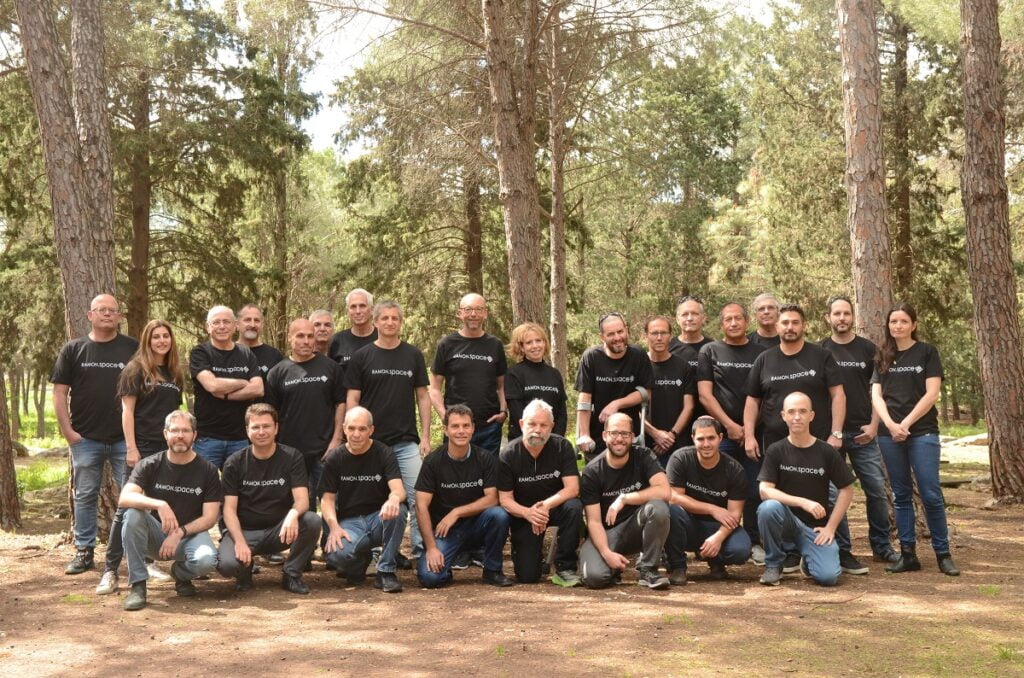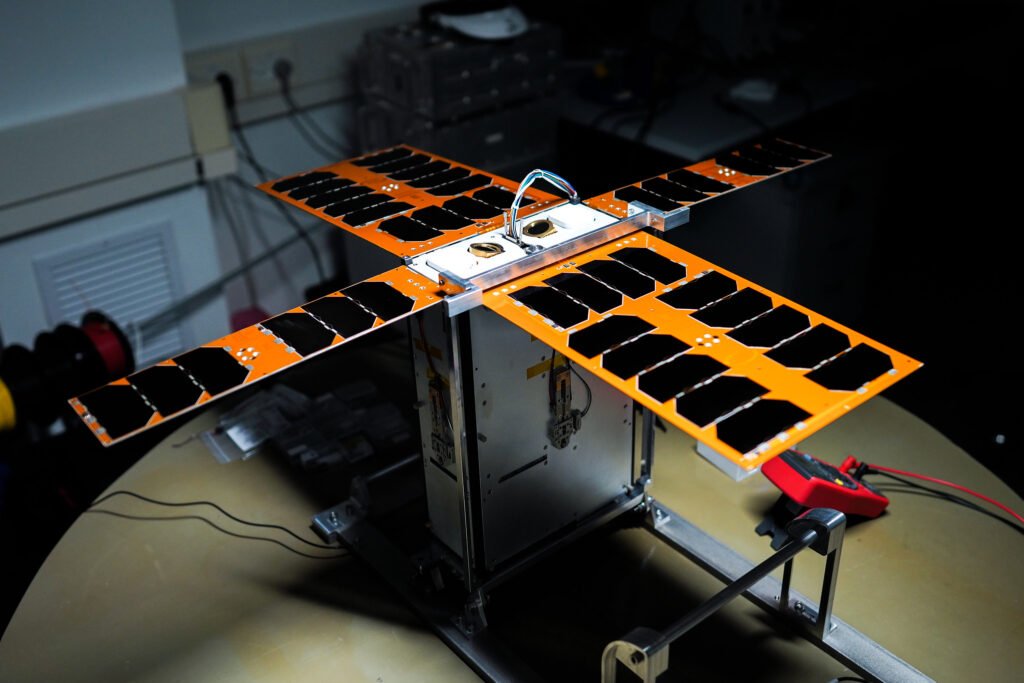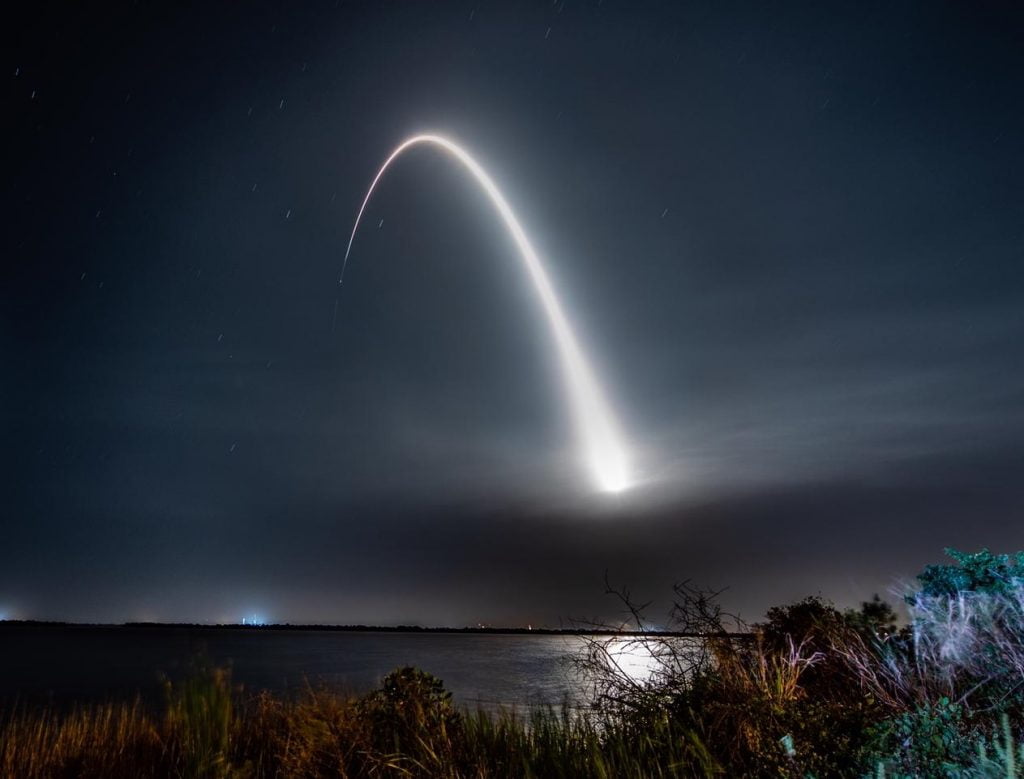Israeli company Ramon.Space, a provider of space computing solutions, announced this week that it raised $17.5 million to lead a digital transformation of computing in outer space. The Series A funding was led by StageOne Ventures, Deep Insight, WorldQuant Ventures, UMC Capital, and existing investor Grove Ventures.
Based in Yokneam Ilit with offices in Palo Alto, Ramon. Space builds space-resilient super-computing systems that bring earth-like computing capabilities to space. The company says it aims to transform the way software and hardware are used in space “so applications can be developed and adapted in real-time, creating infinite possibilities for new space satellite payloads and deep space missions.” Its computing and storage platform leverages specialist multi-core processors Manycore with machine learning and artificial intelligence technology to “power next-generation earth observation, communications, and data processing applications.”
SEE ALSO: In First, 3 Israeli Nanosatellites Launch Into Space For Geolocation Mission
Ramon.Space says it addresses a growing new space market driven by privatization and commercial goals that creates a strong demand for significant processing power, storage, and better intelligence. There is huge market potential but the scale of the computing capabilities required is not yet widely available due to environmental challenges such as radiation and extreme temperatures. These conditions cause computing systems to malfunction and deteriorate.

Ramon.Space says that it uses virtual radiation-hardened technology that “doesn’t just withstand the harsh conditions of space, it thrives in it.” Its technology transforms satellites into smart and autonomous objects, drastically extending their lifetime by providing service agility and in-orbit upgrades that adapt to services and applications.
Ramon.Space’s technologies have already been deployed in over 50 space and deep space missions and satellites, boasting of zero failures so far. Recently, the company deployed its AI/ML processors aboard three nanosatellites built by the Technion – Israel Institute of Technology as part of the Israeli Adelis-SAMSON mission to perform high-accuracy geolocation of target signals on Earth for improved emergency response.
The satellites, launched in March, are tasked with receiving signals from Earth to calculate the location of people, planes, and ships and detect their precise geolocation for search and rescue, remote sensing, and environmental monitoring missions.

“It’s exciting to be part of this great achievement,” said Ramon.Space CEO Avi Shabtai, at the time. “These moments are what make our work so special. The technology created by our company has been in many space missions of many countries. However, it’s especially exciting to be part of the launch of three Israeli satellites into space. We are very proud to be part of this inspiring space program.
With the fresh funding in hand, Ramon.Space says it intends to advance more computing solutions, support its expanding US and Israel operations, and expand its teams globally.
Shabtai said the company was “delighted to have such strong investors with us on this path to lead the digital transformation of space. With our ground-breaking technology, designed for earth-like computing at earth-like costs, we play a major role in the space revolution as the market leader in SW defined computing, networking, and communication payloads.”
SEE ALSO: 44 Israeli Research Projects Headed For Space On Rakia Mission
“Since our first seed investment, Ramon.Space’s growth has made monumental headway in the space ecosystem,” said, Dov Moran, Ramon.Space’s chairman of the board and managing partner at Grove Ventures.
Sign up for our free weekly newsletter
Subscribe“Within our lifetime, we’ll experience the impact and extraordinary benefits of human technological advances in space. Ramon.Space is at the forefront of these unique innovations,” added Moran, one of the local scene’s most prominent high-tech leaders, entrepreneurs and investors.
“Ramon.Space technology will play a disruptive and revolutionary role in solving some of the key challenges in this industry,” said Barak Ben-Eliezer, Managing Partner at Deep Insight, one of the investing firms. “Their innovation has helped accelerate new space intelligent systems and data processing within a $350 billion space industry expected to grow to more than $1 trillion.”
Israel’s space industry
Indeed, the space economy is expected to reach over $1.4 trillion in the next decade, according to a forecasting report by the Bank of America, released in October.
In Israel, there’s been a flurry of activity over the past several years, sparked in part by the country’s mission to the moon two years ago. The Beresheet spacecraft (Hebrew for “Genesis”) by Israeli NGO SpaceIL and the Israel Aerospace Industries (IAI) may have crash-landed on the moon in April 2019 following engine malfunctions, dashing Israel’s hopes of becoming the fourth country in the world (after Russia, China, and the US) to complete a controlled moon landing, but it still broke ground on lunar initiatives and was seen as part of a new era of private space activity. Beresheet was a largely privately-funded moon mission, operating on a relatively modest budget (for a space mission) of approximately $100 million. It was also the smallest spacecraft ever built and traveling the largest distance to the moon.

SEE ALSO: Over A Year After Crash, Israel Gears Up To Send 3 Spacecraft To Moon
And the spacecraft’s innovative design and tech are serving as the basis for future lunar missions by Texas aerospace company Firefly Aerospace. Firefly is building upon the Beresheet endeavor and create a new lunar lander based on the Israeli spacecraft’s blueprints as part of a NASA program to deliver science payloads to the surface of the moon. Firefly was one of nine companies selected by NASA to participate in the Commercial Lunar Payload Services (CLPS).
Late last year, SpaceIL, in cooperation with IAI and the Israeli Space Agency announced the Beresheet 2 project with a goal to put one orbiter and two landers on the lunar surface in 2024, each with a different scientific task.
Separately, Israel also announced that it was sending a second astronaut — Israeli businessman and former fighter pilot Eytan Stibbe — to outer space, after Ilan Ramon who perished in the Columbia Space Shuttle accident in 2003.
Stibbe is set to fly to the International Space Station (ISS) in early 2022 as part of the Axiom Space Ax-1 Mission, pending NASA and Axiom approvals. This first mission to the Space Station, manned entirely by private astronauts – Stibbe, mission commander Michael López-Alegría, investor Larry Connor and philanthropist Mark Pathy — was announced in November of last year.
SEE ALSO: Space Tech Startup NSLComm To Launch 2nd Satellite, Inks Multi-Million Dollar Deal
Stibbe will also be part of the Ramon Foundation (of which he is a co-founder) and the Israeli Ministry of Science and Technology’s Rakia Mission of some 44 Israeli research projects aboard the International Space Station. He is expected to spend 200 hours on the ISS to carry out the locally developed technology experiments developed with a number of private Israeli companies.
Related posts

Editors’ & Readers’ Choice: 10 Favorite NoCamels Articles

Forward Facing: What Does The Future Hold For Israeli High-Tech?

Impact Innovation: Israeli Startups That Could Shape Our Future




Facebook comments